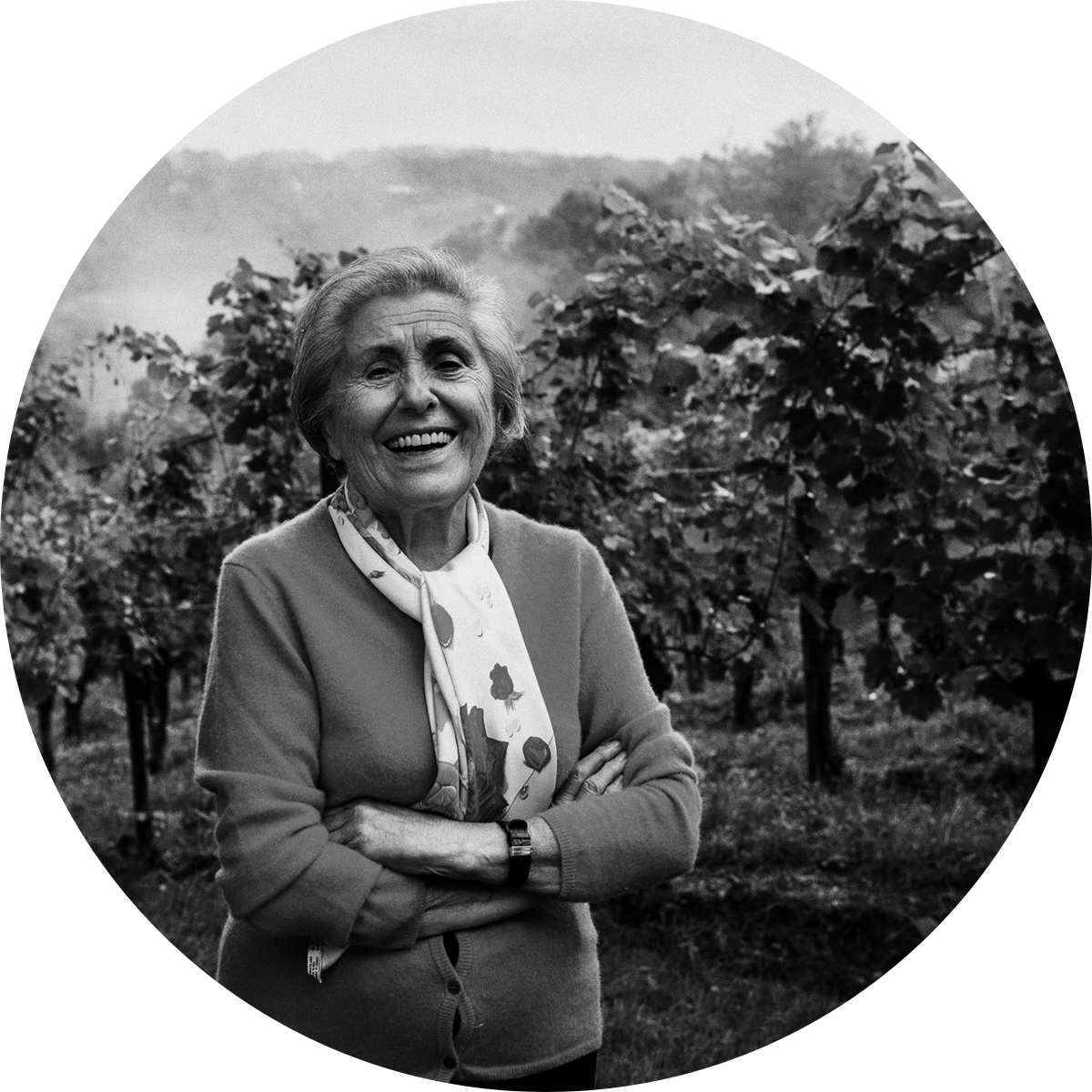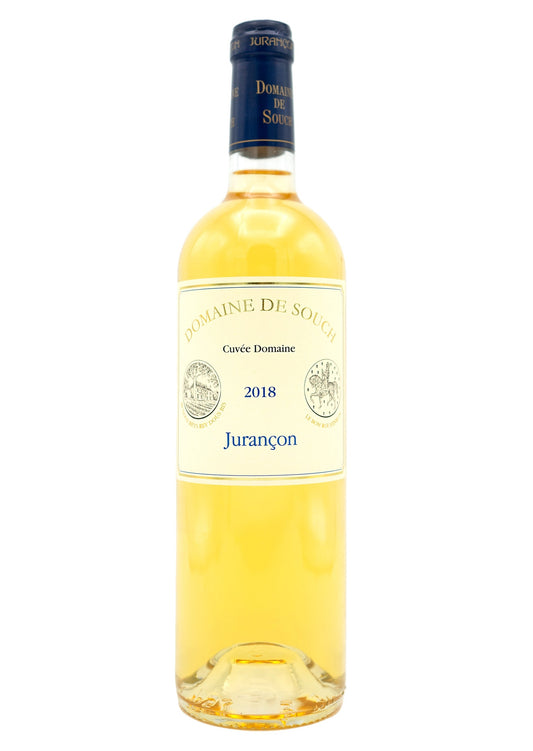DOMAINE DE SOUCH
YVONNE HEGOBURU
Jurançon, Midi-Pyrénées, France
“The story of Yvonne Hegoburu and Domaine de Souch is world-famous thanks to her memorable appearance in Jonathan Nossiter's Mondovino. Yvonne started to produce wine in 1989 at 60 years old, as a tribute to her late husband René, who sadly passed away. Just south of Pau, they had bought a property with the dream of one day planting a vineyard on this fallow ground. As she discovered the world of wine, she also discovered organic and biodynamic farming and converted the property in 1995 (certified organic and practising biodynamic).
The Domaine is isolated, located on the top of a ridge in Laroin. The 6.8 ha vineyard forming one block split in multiple plots protected from neighbours by woodlands. There, at 330 m elevation, the Petit Manseng (70% of the planting), Gros Manseng (20%) and Petit Courbu (10%) are grown and hand-harvested as it is mandatory for all wines in Jurançon.”It’s with great sadness that Yvonne passed away this year, at the age of 95 years old.
-
Domaine de Souch Cuvée Domaine Sweet 2018 (500ml)
Regular price HK$220.00Regular priceUnit price / per
BACKGROUND OF NATURAL WINE IN SOUTH WEST
The South West of France stretches along the Atlantic coast and it’s bordered by the Pyrenees mountains. Popular grape varieties cultivated here include Malbec, Tannat, Merlot, Sauvignon Blanc, and Gros Manseng, among others. With its dynamic terroir, unique microclimates, and commitment to sustainable viticulture, the South West of France continues to captivate wine enthusiasts with its distinct flavours and exceptional quality.
Organic, Biodynamic and Natural wine. What’s the difference?
To understand this concept and its various ramifications, it is necessary to keep something clear in mind: before the 20th century and the spreading of affordable synthetic fertilisers, all farming was organic. When the shift to the use of synthetics and pesticides happened, it became necessary to diversify traditional organic farming from the new modern farming.
ORGANIC WINE
Simply put, organic farming forbids the use of synthetic fertilisers, synthetic pesticides, herbicides, or genetically modified organisms. The basic requirements are generally specific and engage the farmers not to use any chemical fertilisers and other synthetic products in the vineyard. It does not prevent the vintner from using the conventional winemaking process after harvesting.
BIODYNAMIC WINE
Let’s take organic farming one step further: Biodynamic. The creator of this agricultural system is the Austrian philosopher Rudolf Steiner, who developed the principles of biodynamics in a series of lectures given in 1924 in Germany. Here lies the foundation of true organic wines, with a strict limit in the use of additives, stringent requirements and at the end obtaining a biodynamic certification.
NATURAL WINE
The previous definitions are usually, and rightfully, associated with it, because most natural wine is also organic and/or biodynamic. But not vice versa!
Natural wine is wine in its purest form, simply described as nothing added, nothing taken away, just grapes fermented. No manipulation whatsoever, minimal intervention both in the vineyards and in the winery. Healthy grapes, natural yeast and natural fermentation, with no filtration nor fining. Sounds easy, right? However, making natural wine is unforgiving and it requires a bigger amount of work than conventional wine. To this day, natural wine has no certification yet.






